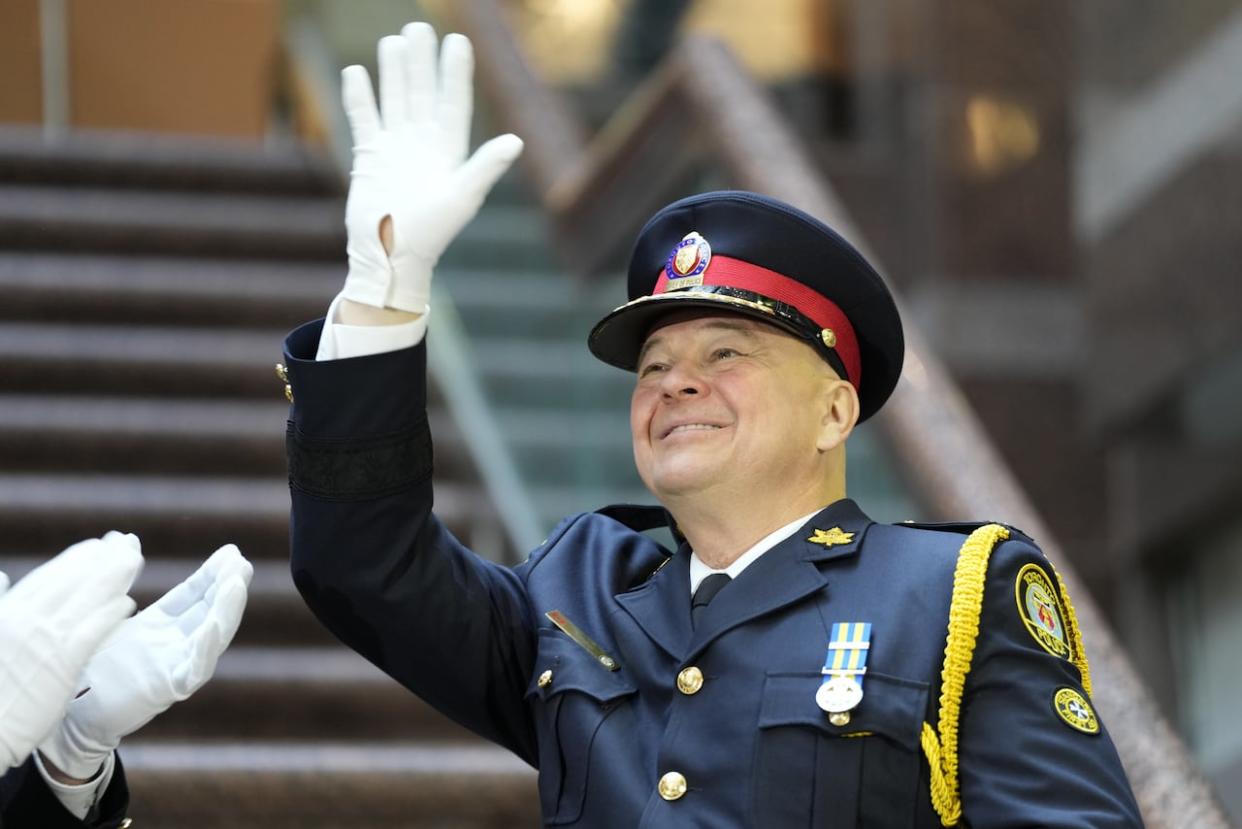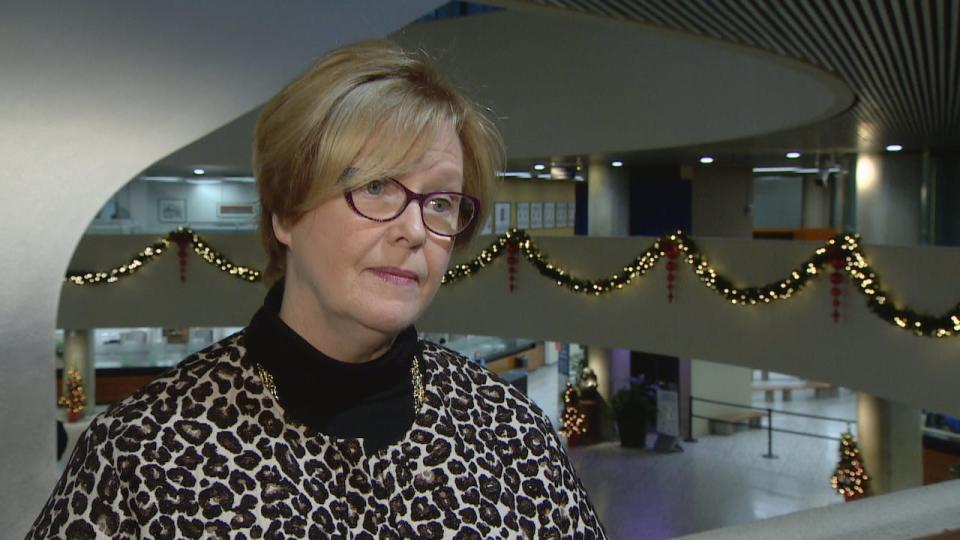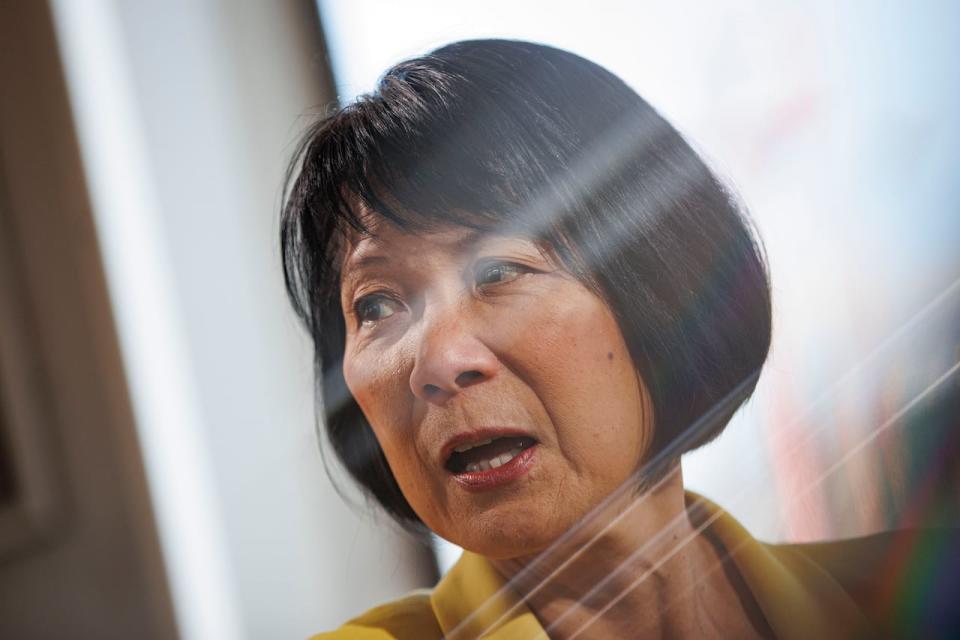Is Toronto's police budget getting a cut or a boost? The answer depends on who you ask

Toronto's new mayor appears headed for a budget showdown with the city's police service as she grapples with a massive deficit and pressure to address emergency call response times.
You've probably heard the debate over Toronto's police budget — and who you've heard about it from makes a big difference.
Here's the core of the debate:
The Toronto Police Service wants $20 million added to their nearly $1.2-billion budget for this year. City staff – to be clear, civil servants and not elected councillors – say they should get $7.4 million.
Police Chief Myron Demkiw says that $12.6 million difference is a cut. Mayor Olivia Chow says it's not.
"Let me set the record straight," she told reporters this week. "The Toronto Police are receiving millions of dollars more in their budget. There's no cuts."
Chow will have to decide if she will endorse the staff proposal in her draft budget on Thursday. Then city council will vote on the spending package.
Toronto's police budget is a perennial hot-button issue at city hall. Last year, former mayor John Tory supported a controversial $48-million budget hike for Toronto police. Tory and his allies then voted down a motion from Davenport Coun. Alejandra Bravo to reallocate nearly $900,000 from the police budget to shelter services.
This year, the debate has already taken on a different tone.
For now, the new mayor appears to be holding firm while the police service and the Toronto Police Association (TPA) have launched campaigns to fight the move.
On Friday, the budget committee endorsed the staff recommendation, but some city councillors signaled they want to award the full request to the police.
"I think you're going to see a lot of councillors wanting to make that change at council," Deputy Mayor Jennifer McKelvie said.
So what's the chief saying?
Both Demkiw and the TPA have said the proposed level of funding puts the public at risk.
"Any reduction to our modest, below the rate of inflation, ask of 1.7 per cent will present an unacceptable risk to our ability to provide the adequate and effective police services that are required by legislation," the chief told the budget committee.
The chief has stressed that police are handling an increased workload because of large public demonstrations, more carjackings, home invasions and auto thefts.
The service says it hired 200 new officers last year with the aim of cutting response times for the highest priority calls.The chief says if it doesn't get its full budget request this year, it won't be able to hire an additional 300 officers. That would grow the ranks of the police service to over 5,400 officers.
Police face pushback, including for podcast
Budget Chief Shelley Carroll has raised questions about police spending taxpayer money on a sole-sourced contract worth $300,000 to produce a podcast with a limited audience.
That promotional vehicle, dubbed 24 Shades of Blue, released its most recent episode on Jan. 18, the same day Demkiw appeared at the city's budget committee to defend police spending.
The contract for the podcast has not been extended, TPS spokesperson Stephanie Sayer confirmed in an email to CBC Toronto.

Toronto budget chief Shelley Carroll says the city has set money aside to address pay raises for police officers and administrators, which are expected later this year. That money is not part of the police budget under debate. (CBC)
What about 911 call times?
A big part of the push by Toronto police and the TPA campaigns focus on response times.
The service has even taken the unusual step of using its social media accounts, run by officers and staff on the public payroll, to advocate for the budget increase to address call response times.
Demkiw told budget committee members that the average wait for a priority call is now 22 minutes. The service standard is six minutes.
But questions remain about what an adequate emergency response standard should be in Toronto and if police could lower it if provided with the increase.
Last year, during budget deputations, committee members pressed Demkiw on whether the $48-million increase would help bring down the then 20-minute average response time.
"To give a hard estimate at this point, I can't give you, because it is a long-term project for us," Demkiw told the committee.
Asked again this year by reporters if he could promise response times would drop if the service received its requested budget, he couldn't say.
"There's a lot of variables there for me to consider to make a promise of that nature," he said.
Demkiw told councillors last year that the Toronto Police Services Board set a goal of a six-minute response time for priority calls in 1995 and the service has never hit that standard.
The service was working with the board to examine other cities and their response times to high priority calls. That could lead to the city establishing a new response time standard, Demkiw added.

Mayor Olivia Chow pushed back against accusations from the police service that the city is planning to cut its budget. She says the police will get a 'substantial increase' this year. (Evan Mitsui/CBC)
Extra cash for TPS outside of the budget?
A budget note provided to councillors says the police service will receive tens of millions more this year not yet included in its budget.
The largest envelope is a confidential item set aside in city reserves to address a contract settlement likely to come later this year. It assumes city police officers, and senior managers, will receive a pay raise.
Staff say for every one per cent increase to salary and benefits, the city will need to transfer an additional $10 million to the police department.
"There will be a raise awarded to the entire police association and the senior officers in the organization later this year, which will jack their budget up even higher," Carroll said. "So, we're doing what we can afford."
The briefing note also points to an additional $10 million in funding the city says it's making available to the police service to manage premium pay costs related to special events held across the city.
Who controls the police budget?
The Toronto police board sets the service's budget in consultation with police administration. That spending package is debated at committee and city council.
City councillors ultimately set the budget allocation for the service, but cannot control how that allocation is spent. That means councillors can reduce a proposed budget from the police, but not tell them how to implement the reduction.
Former city councillor Joe Mihevc says the tug of war over control of police spending is nothing new.
This year the city is tackling a $1.8-billion budget deficit. The city funds a wide array of services with its $16-billion budget and policing is just one of them, he said.
All departments have been asked to constrain costs, and that must include the police service, he said.
"The police budget is always the biggest slice of your municipal taxes and the toughest one to achieve a fiscal discipline around," Mihevc said.


